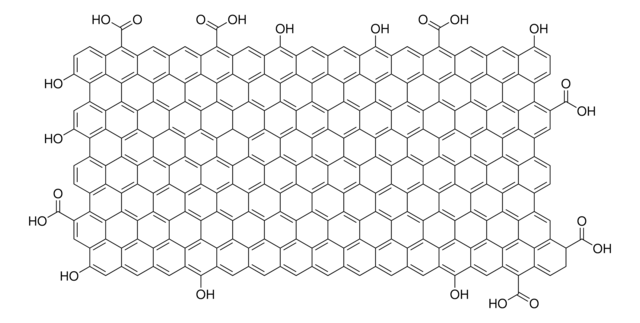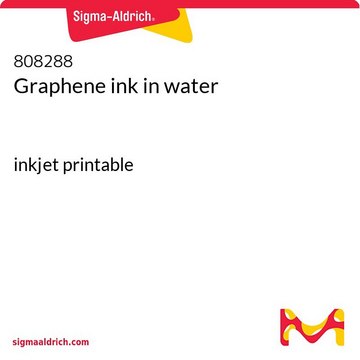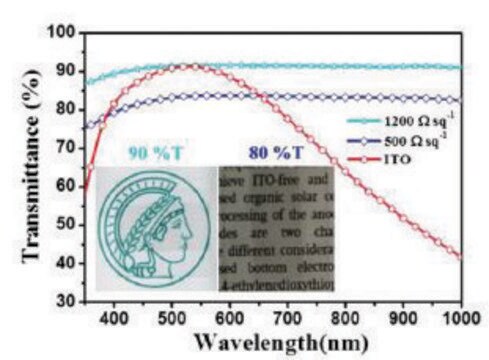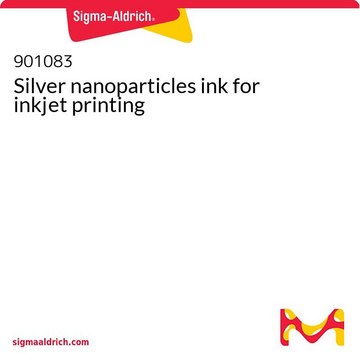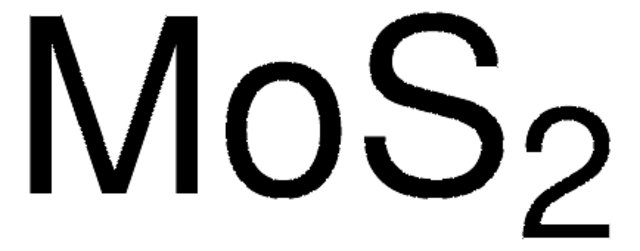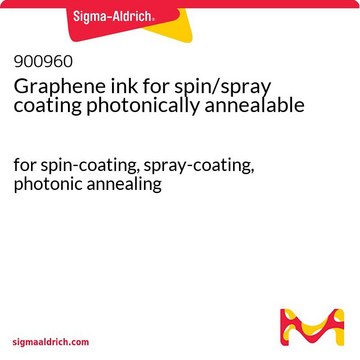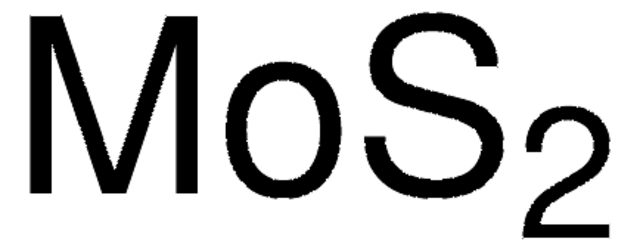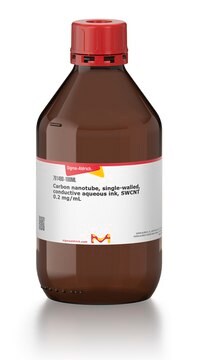901410
Hexagonal boron nitride ink
for inkjet printing
Synonym(s):
Hexagonal boron nitride dispersion, with ethyl cellulose in cyclohexanone and terpineol, hBN dispersion, hBN inkjet printable ink
About This Item
Recommended Products
Quality Level
form
dispersion
composition
Solid content, 4.4-6.4%
greener alternative product characteristics
Design for Energy Efficiency
Learn more about the Principles of Green Chemistry.
sustainability
Greener Alternative Product
color
white
particle size
≤0.3 μm
surface tension
30-35 dyn/cm
viscosity
6-15 cP (shear viscosity at 1000 s-1, 25 °C)
bp
213-218 °C (Terpineol)
density
0.9-1.1 g/mL at 25 °C
greener alternative category
InChI
1S/BN/c1-2
InChI key
PZNSFCLAULLKQX-UHFFFAOYSA-N
Looking for similar products? Visit Product Comparison Guide
General description
Application
Legal Information
Signal Word
Danger
Hazard Statements
Precautionary Statements
Hazard Classifications
Acute Tox. 4 Dermal - Acute Tox. 4 Inhalation - Acute Tox. 4 Oral - Eye Dam. 1 - Flam. Liq. 3 - Skin Irrit. 2 - STOT SE 3
Target Organs
Respiratory system
Storage Class Code
3 - Flammable liquids
WGK
WGK 3
Flash Point(F)
115.7 °F
Flash Point(C)
46.5 °C
Choose from one of the most recent versions:
Certificates of Analysis (COA)
Don't see the Right Version?
If you require a particular version, you can look up a specific certificate by the Lot or Batch number.
Already Own This Product?
Find documentation for the products that you have recently purchased in the Document Library.
Customers Also Viewed
Articles
Dr. Xiang’s and Maruyama’s review presents the most recent research activities on 1D vdWHs, including the candidate materials, the synthetic techniques, and characterization methods. The optoelectronic applications are discussed in detail for different constructions of the 1D vdWHs-based devices (FETs, sensors, LEDs, photovoltaic devices, and light detection). Some challenges and perspectives for future development and applications of 1D vdWHs are also proposed to conclude the review.
Professor Ebrahimi and Professor Robinson (Pennsylvania State University, USA) summarize recent advances in the synthesis of these 2D materials, resulting material properties, and related applications in biosensing of neurotransmitters, metabolites, proteins, nucleic acids, bacterial cells, and heavy metals.
Professor Gogotsi and Dr. Shuck introduce MXenes: a promising family of two-dimensional materials with a unique combination of high conductivity, hydrophilicity, and extensive tunability.
Our team of scientists has experience in all areas of research including Life Science, Material Science, Chemical Synthesis, Chromatography, Analytical and many others.
Contact Technical Service
